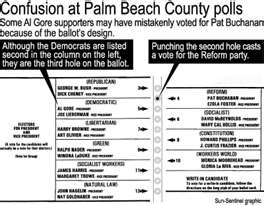The GOP stance on this issue is that they're simply trying to prevent "massive" voter fraud and to thwart illegal immigrants from casting ballots in American elections. I wondered where these enormous numbers of fake voters could be found. I've voted, with the exception of one year, annually for more than three decades. I've voted in squalid inner cities and prosperous suburbs. I grew up in a small, very Republican town. I was too young to vote at that time, but my parents did vote and took the privilege seriously. They got accustomed to the election officials wearing GOP badges inside the polling area. No one ever complained or called the ACLU.
In all of these venues, the concept of waves of people appearing en masse at a polling station was simply a ridiculous notion. Those experiences led me to conclude that Republican efforts to inhibit the right to vote to as many people as possible is simply shameful. The action casts doubt on the validity of the Republican claim (especially the Tea Party faction's assertion) that they represent the majority of Americans. If that claim were true, the Republicans would want to register as many people as possible, so as to add the weight of numbers to their argument.
Voting is fundamentally connected to the rights of free speech and assembly. In the iterations of Occupy (fill in the blank), municipalities have squirmed over enabling these constitutionally guaranteed rights. What the Occupy phenomenon has brought to light is that those rights need to be reasserted, regardless of political perspective.












No comments:
Post a Comment